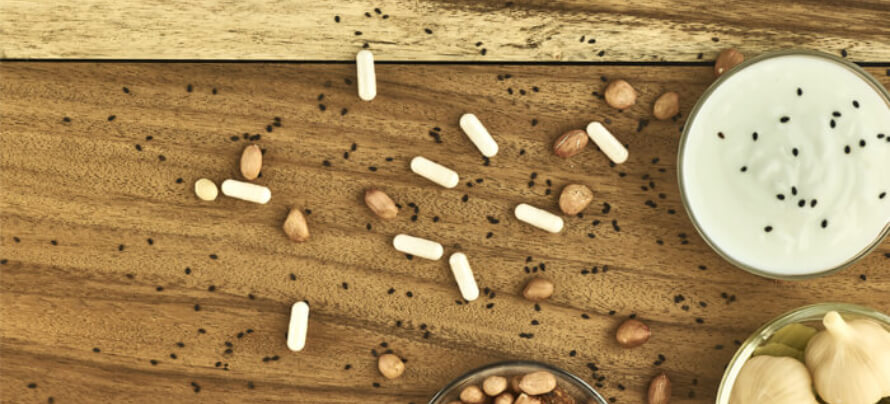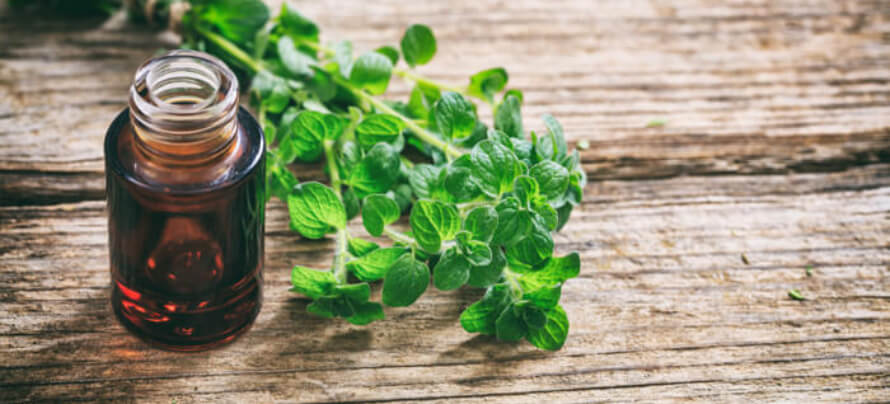Key Takeaways
- Gut health supplements are used to ensure good digestion, prevent stomach discomfort, and support good gut bacteria.
- Most gut health supplements center around just making sure you can move food through your body well and avoid constipation, only becoming useful when something is wrong.
- Add some psyllium husk to your routine, especially if you have low dietary fiber intake, and consider berberine and probiotics if you have any pain or abnormalities when pooping or digesting.
I went to university for human nutrition.
It was a class of 200 people of which included 3 guys; the gay guy, the hot guy, and me.
Despite this, I outright refused to try and hook up with any of the lovely ladies in my courses. Want to know why?
Well, I was typecast as “the smart guy.” I helped a lot of people with questions that they found difficult. This was a human nutrition course.
Every female in the class loved to talk shit with me; literally.
Anybody with a dietitian or nutritionist relative can understand this. Anybody with a nutritional background has absolutely no shame in talking about feces in obscenely picturesque terminology even over some nice tea and biscuits. Hell, they’d be more than willing to remind you that you’re putting “future feces” into your mouth right now.
Unfortunately, I too have fallen into the feces fanaticism. It’s like an infection. Good bowel movements are incredibly important but it’s not like I can tell you all about it to your face; I have some shame after all.
So I’ll just tell you all, online, how to defecate like a demon. Turn your foot-long floaters into veritable corn battleshits to optimize your intestinal health.
Sometimes, however, we don’t really have diets conducive to this. Veggies don’t come often, meat is too delicious, and we think that sitting on the porcelain throne for 10+ minutes is normal. It’s not, and if you can’t modify the diet to help you at least try to supplement for it.
Thusly, I shall tell you the secrets of supplements that assist in pooping. I divulge this information to you freely but on one condition…
If we ever meet, pretend I never said any of the above. Please, I know I’m a shitlord but not like this… not like this…
- Why Do People Take Gut Health Supplements?
- How Do Gut Health Supplements Work?
- The Best 3 Gut Health Supplements
- The Worst 3 Gut Health Supplements
- The Bottom Line on Gut Health Supplements
Table of Contents
+Want to listen to more stuff like this? Check out my podcast!
Why Do People Take Gut Health Supplements?
As a general rule of thumb there are two reasons people take gut health supplements:
- They have been told that to be optimally healthy you need to maintain a healthy gut.
- Something just hurts and doesn’t work properly and they’d rather it was normal.
A theoretical and more long-term reason that you put your faith into, and a super simple “as long as it makes me feel better and makes the washroom trips go easier” reason. Both are valid reasons, mind you, and it wasn’t until the rise of probiotics that people even cared about gut “health.”
“Gut health” can also mean many different things, and so gut health supplements can work in many different ways.
Let’s go over the main ones.
How Do Gut Health Supplements Work?

Gut health supplements support the process of your food going from hole A to hole B.
Everything between the dining room and the washroom is digestion and, excluding the initial stages in the stomach, everything else (the small intestines and the large intestines) is referred to as the “gut.” These stages are where the majority of nutrient absorption takes place.
Gut health supplements support the process of digestion and these benefits can manifest as:
- Sustaining the size and texture of the “chyme” (what we call poop before it comes out.)
- Allowing absorption of nutrients to occur at an acceptable level.
- Making sure you do not get diarrhea nor become constipated.
- Making sure no pain or discomfort occurs during the process of digestion.
And beyond the management of chyme, sometimes you can see digestive enzymes sold as “gut health” supplements. I don’t personally view them as such but they can serve a purpose if your intestines are otherwise damaged (like in cystic fibrosis where supplemental enzymes are vital.)
Supplements that cater towards supporting digestion tend to work by physically supporting the chyme. These include most fibers, electrolytes, and some probiotics.
There are also many gut health supplements that do not work via supporting the digestion process but, rather, promise health effects associated with supplementation.
These tend to either support intestinal cells themselves, much like L-glutamine supplementation, or are probiotics that promise to alter your gut microflora in a beneficial manner.
Just as a quick debriefing on how probiotics even do anything—it’s a common misconception that only the small intestines absorb nutrients. While the small intestines absorb the majority of the nutrients, and especially the calorie-providing macronutrients, the colon (large intestine) frequently exchanges amino acids, minerals, and other nutrients with the blood.
The reason for this is because the bacteria in your large intestine do require some food, usually indigestible components of food, and after they eat stuff the byproducts they make have to go somewhere; at times out your butt, at other times into your bloodstream.
So, yeah, fiber can reduce blood pressure because bacteria eats your poop and you in turn absorb the bacteria’s poop; wonderful.
Supplements that support health, secondary to the gut, tend to do so via manipulating the bacteria in your large intestines or how they function.
The Best 3 Gut Health Supplements
The best 3 gut health supplements tend to be the ones that are not only cheap and side-effect “free” (i.e. low risk) but generally just make you poop better.
These include:
- Psyllium husk
- Probiotics
- Berberine
Let’s go over each one.
Best Gut Health Supplement #1
Psyllium Husk
Psyllium husk is the prototypical dietary fiber.
An approximate blend of 50% soluble (water absorbing and stool softening) and 50% insoluble (absorbs dietary fats, prevents constipation) fibers, it’s the standard supplemental fiber as well as the main component of the popular fiber supplement Metamucil itself.
Due in part to the balanced blend of fiber subtypes, psyllium can both prevent diarrhea while also preventing constipation; usually those two roles do not occur with the same fiber type as they are opposite of each other but, hey, psyllium is just damn good.
Furthermore it’s known to increase stool size, soften stools, make them easier to pass and can make users more regular regardless of their health. The “feeling of completion” after a bowel movement, or whether or not you think you let everything out, is also increased with psyllium.
So in short, it makes you poop like a god.
Also, perhaps contradictorily, may also result in you farting less—the gas builds up inside the stool so doesn’t need to leave via … other means.
These are by far the most noticeable, and popular, reasons to supplement psyllium but this fiber has also been linked to minor health benefits. Blood glucose and cholesterol are also regulated, albeit somewhat weakly, by psyllium ingestion.
For anybody who wants a small health boost in the right direction and wants to have the porcelain respect them, psyllium is a top tier supplement; creatine for your butt.
Psyllium husk is a widely available, cheap, and reliable way to improve how easily, completely, and effectively you can poop. There’s really no more polite way to say that, it just makes you poop so well you’d want to brag about it.
Best Gut Health Supplement #2
Probiotics (Common Strains)

When I refer to the common strains of probiotics I am referring to what are normally found in dietary supplements; lactobacillus acidophilus and bifidobacterium (longum, lactis, and infantus.)
There are, of course, dozens of bacterial strains on the market and many others not on the market that are infinitely interesting; for example, lactobacillus casei Shirota (the bacteria strain found in Yakult products) and my favorite, ATCC PTA 6475 lactobacillus reuteri. Yup, big ol’ name and cool studies.
But to break down each and every probiotic is time consuming and, let’s be honest, a lot of the specifics are beyond me. This is why this section is just a general section about human studies on the most common probiotics.
Without further ado, what do they do?
Probiotic supplementation is based on getting the “good” bacterial strains to eat fiber and poop out the “good” metabolites, usually specific short chain fatty acids, that reduce cholesterol and improve overall cardiovascular health while also providing a localized (large intestine) anti-inflammatory effect.
The localized anti-inflammatory effect can manifest itself as a reduction in drug-induced diarrhea—mostly from antibiotics but is currently also being investigated for diarrhea from cancer drugs.
So in a way it’s similar to psyllium husk in the sense that it improves how your body handles your chyme and improves health but, it seems, probiotics are a bit more catered towards health than the structure of the chyme itself.
Probiotic supplements, in general, can provide mild cardioprotective benefits after supplementation.
In instances where the large intestines suffer inflammation, damage, or are subject to drugs that disturb the bacteria there then supplementation may be rehabilitative.
Best Gut Health Supplement #3
Berberine
Berberine is an alkaloid from the plant berberis aristata—used both in Traditional Chinese Medicine (TCM) and Indian Medicine (Ayurveda.)
While these days we know of berberine due to it’s potent actions on a protein known as AMPK, in a manner and potency comparable to Metformin it has traditionally been used for its effects on the gut. It is both anti-inflammatory and anti-diarrhetic, and traditionally was probably used for helping destroy food borne pathogens (not too too relevant with a modern food supply but hey, still nice.)
Given how inflammatory bowel diseases tend to have diarrhea and loose stools as a common side-effect, a supplement that can couple these effects shows great promise when it comes to irritable bowel syndrome (IBS) and ulcerative colitis.
And just to put some icing on the cake, berberine seems to be able to alter gut microflora in a manner that’s protective against obesity in rats. Probably not the best probiotic but, hey, berberine has that street cred as well.
Berberine is taken at 500 mg 3 times a day with meals, for a total of 1,500 mg each.
Berberine shines in situations where inflammation in the gut results in loose stools and diarrhea. When supplemented, combined anti-inflammatory and anti-diarrhetic effects can result in a normalized gut state.
Honorable Mentions
Colostrum (Bovine/Immunized)
Colostrum is a term that refers to the “first milk” from any species with breasts.
This thicker-than-normal milk is chock-full of immune supporting proteins and molecules designed to nourish the young who cannot otherwise digest properly yet. It had a stint as a health-supporting supplement a while ago since breast milk is nourishing and, well, nobody wanted to try and sell human-sourced colostrum.
So we did as humans do best and stole it from other species, in this case cows.
It ended up not being proven too much for the inherent health-promoting properties but it was found that, if you immunized the cow against pathogens, that you got antibodies in the colostrum in pretty high levels.
This has been used, with success, in mitigating traveller’s diarrhea caused by E.coli. This bacteria is notorious for hanging around food stalls and causing traveller’s to be hesitant to explore local cuisine unless they want violent diarrhea, and it seems that colostrum supplementation taken alongside the food can reduce the risk of diarrhea occurring.
That seems to be the only major benefit though. Niche, but useful to know
Immunized colostrum can be used to prevent travelers diarrhea caused by E.coli.
The Worst 3 Gut Health Supplements
The 3 worst gut health supplements in this section are all bad due to being “overhyped” in a way; the only things that really damage the gut, laxative abuse and drug use, aren’t commonly sold as supplements.
With one exception …
Worst Gut Health Supplement #1
“Detox” Supplements

Right, so I could lambast detox diets one more time but for this section I want to specifically address the dietary supplements sold alongside the detox diet plans; usually where these companies get their money.
There are two categories that I have seen these fall into, assuming something in them is “working”:
- They are just laxatives.
- They are a completely normal greens/probiotic supplement with a higher than normal price.
Usually the laxatives are supplements taken on the first day of the detox whereas the other product with probiotics is taken afterwards.
The latter category is sneaky but, ultimately, if you were just on a diet that caused you to crap out a large chunk of your good bacteria and then fasted then it’s kinda nice that you’re getting some probiotics
The former, however, is horrendous. Not so much for a single time, nobody has been hurt from a single bout of herbal laxatives (usually senna alexandrina) but if you do this repeatedly then you run the risk of damaging your intestines.
As a general rule of thumb, supplements sold alongside detox plans that are taken in the first few days may contain laxatives. If they do then, if used repeatedly and in an unnecessary manner, may be damaging.
Worst Gut Health Supplement #2
Bone Broth Supplements
Bone broth supplements continue being weird.
With these “flavor of the year” supplements I honestly don’t know when I’m beating a dead horse or not so, apologies if that’s the case, but apparently this is recommended for gut health as well?
Oy vey.
Bone broth as a food product is pretty nice, makes good stews, but as a supplement it usually refers to the amino acid glycine—perhaps with a bit of calcium. Glycine is a supplement that might help with sleep, hence why we have a bit in Lunar, but is otherwise unimpressive.
It pops up a lot in dietary supplements, like type 1 collagen supplements (which are also predominantly glycine) since it’s very sweet and very cheap. Doesn’t even absorb much water, pure glycine powder is honestly delicious.
But there’s no reason why these supplements would influence the gut to a large degree unless they, for some reason, started lacing them with large amounts of L-glutamine.
There are no scientific studies on the topic of bone broth supplements and gut health nor does there appear to be any reason why they would work for gut health.
Worst Gut Health Supplement #3
Oregano

I like oregano, taste-wise; one of my favorite spices to pair with meat.
It has some research on this topic as well. It seems that, due to a potent antioxidant effect paired with some anti-microbial effects, marinades made with oregano are among the best marinades to keep meat fresh and tasty during storage.
However, every now and then you see people extending these effects to the gut. This is due to a small study conducted almost two decades back that saw relatively potent anti-parasitic effects with oregano oil supplementation.
Now, not gonna look down on oregano for doing that. It’s not like we have a lot of options for fighting parasites in the gut after all (except, you know, mainstream medicine) but it seemed that this opened the floodgates for oregano to get the entire “probiotic, gut health, reduce inflammation” spiel.
Oregano is cool, and tasty, but it asn’t been studied much beyond the aforementioned studies. The essential oil of oregano is not some digestive panacea.
Oregano is a pretty decent spice, but it seems the essential oil of oregano is at times hyped up to do things that it currently does not have evidence to support. It can make a nice marinade for red meat though.
The Bottom Line on Gut Health Supplements
Gut health supplements are, at times, among the most important supplements. If you can’t get nutrients from your food due to a damaged or malfunctioning gut, after all, how can you thrive?
But they can also become some of the most useless ones. If your diet is great and your gut functioning normally then … why do anything unnecessary?
Just eat healthy, move your hips around each day (jostle that colon yo), and eat some fiber to keep things regular. Don’t abuse any drug that damages the intestines much and you should be good with just food.
Feel free to consider some sugar-free Metamucil (psyllium) to add onto the fiber count, works wonders and I’d actually recommend the orange stuff with a scoop of chocolate Whey+ (it’s like an off-brand Terry’s Chocolate Orange filled with healthy disappointment.)
Now show that toilet who’s boss.
What’s your take on the best and worst supplements for gut health? Have anything else to share? Let me know in the comments below!
Scientific References +
- Force, M., Sparks, W. S., & Ronzio, R. A. (2000). Inhibition of enteric parasites by emulsified oil of oregano in vivo. Phytotherapy Research, 14(3), 213–214. https://doi.org/10.1002/(SICI)1099-1573(200005)14:3<213::AID-PTR583>3.0.CO;2-U
- De Falco, E., Mancini, E., Roscigno, G., Mignola, E., Taglialatela-Scafati, O., & Senatore, F. (2013). Chemical composition and biological activity of essential oils of origanum vulgare L. subsp. vulgare L. under different growth conditions. Molecules, 18(12), 14948–14960. https://doi.org/10.3390/molecules181214948
- Matsuura, H., Chiji, H., Asakawa, C., Amano, M., Yoshihara, T., & Mizutani, J. (2003). DPPH radical scavengers from dried leaves of oregano (Origanum vulgare). Bioscience, Biotechnology and Biochemistry, 67(11), 2311–2316. https://doi.org/10.1271/bbb.67.2311
- Tacket, C. O., Losonsky, G., Link, H., Hoang, Y., Guesry, P., Hilpert, H., & Levine, M. M. (1988). Protection by Milk Immunoglobulin Concentrate against Oral Challenge with Enterotoxigenic Escherichia coli . New England Journal of Medicine, 318(19), 1240–1243. https://doi.org/10.1056/nejm198805123181904
- Otto, W., Najnigier, B., Stelmasiak, T., & Robins-Browne, R. M. (2011). Randomized control trials using a tablet formulation of hyperimmune bovine colostrum to prevent diarrhea caused by enterotoxigenic Escherichia coli in volunteers. Scandinavian Journal of Gastroenterology, 46(7–8), 862–868. https://doi.org/10.3109/00365521.2011.574726
- Zhang, X., Zhao, Y., Zhang, M., Pang, X., Xu, J., Kang, C., Li, M., Zhang, C., Zhang, Z., Zhang, Y., Li, X., Ning, G., & Zhao, L. (2012). Structural changes of gut microbiota during berberine-mediated prevention of obesity and insulin resistance in high-fat diet-fed rats. PLoS ONE, 7(8). https://doi.org/10.1371/journal.pone.0042529
- Kawashima, K., Nomura, A., Makino, T., Saito, K. I., & Kano, Y. (2004). Pharmacological properties of traditional medicine (XXIX): Effect of hange-shashin-to and the combinations of its herbal constituents on rat experimental colitis. Biological and Pharmaceutical Bulletin, 27(10), 1599–1603. https://doi.org/10.1248/bpb.27.1599
- Chen, C., Tao, C., Liu, Z., Lu, M., Pan, Q., Zheng, L., Li, Q., Song, Z., & Fichna, J. (2015). A Randomized Clinical Trial of Berberine Hydrochloride in Patients with Diarrhea-Predominant Irritable Bowel Syndrome. Phytotherapy Research, 29(11), 1822–1827. https://doi.org/10.1002/ptr.5475
- Madsen, J. L., Linnet, J., & Rumessen, J. J. (2006). Effect of nonabsorbed amounts of a fructose-sorbitol mixture on small intestinal transit in healthy volunteers. Digestive Diseases and Sciences, 51(1), 147–153. https://doi.org/10.1007/s10620-006-3100-8
- Turner, N., Li, J. Y., Gosby, A., To, S. W. C., Cheng, Z., Miyoshi, H., Taketo, M. M., Cooney, G. J., Kraegen, E. W., James, D. E., Hu, L. H., Li, J., & Ye, J. M. (2008). Berberine and its more biologically available derivative, dihydroberberine, inhibit mitochondrial respiratory complex i: A mechanism for the action of berberine to activate amp-activated protein kinase and improve insulin action. Diabetes, 57(5), 1414–1418. https://doi.org/10.2337/db07-1552
- Hassan, H., Rompola, M., Glaser, A. W., Kinsey, S. E., & Phillips, R. S. (2018). Systematic review and meta-analysis investigating the efficacy and safety of probiotics in people with cancer. In Supportive Care in Cancer (Vol. 26, Issue 8, pp. 2503–2509). Springer Verlag. https://doi.org/10.1007/s00520-018-4216-z
- Cai, J., Zhao, C., Du, Y., Zhang, Y., Zhao, M., & Zhao, Q. (2018). Comparative efficacy and tolerability of probiotics for antibiotic-associated diarrhea: Systematic review with network meta-analysis. In United European Gastroenterology Journal (Vol. 6, Issue 2, pp. 169–180). SAGE Publications Ltd. https://doi.org/10.1177/2050640617736987
- He, J., Zhang, F., & Han, Y. (2017). Effect of probiotics on lipid profiles and blood pressure in patients with type 2 diabetes: A meta-analysis of RCTs. In Medicine (United States) (Vol. 96, Issue 51). Lippincott Williams and Wilkins. https://doi.org/10.1097/MD.0000000000009166
- Wang, L., Guo, M. J., Gao, Q., Yang, J. F., Yang, L., Pang, X. L., & Jiang, X. J. (2018). The effects of probiotics on total cholesterol. Medicine (United States), 97(5). https://doi.org/10.1097/MD.0000000000009679
- Levkovich, T., Poutahidis, T., Smillie, C., Varian, B. J., Ibrahim, Y. M., Lakritz, J. R., Alm, E. J., & Erdman, S. E. (2013). Probiotic Bacteria Induce a “Glow of Health.” PLoS ONE, 8(1). https://doi.org/10.1371/journal.pone.0053867
- Gonlachanvit, S., Coleski, R., Owyang, C., & Hasler, W. L. (2004). Inhibitory actions of a high fibre diet on intestinal gas transit in healthy volunteers. Gut, 53(11), 1577–1582. https://doi.org/10.1136/gut.2004.041632
- de Vries, J., Miller, P. E., & Verbeke, K. (2015). Effects of cereal fiber on bowel function: A systematic review of intervention trials. In World journal of gastroenterology (Vol. 21, Issue 29, pp. 8952–8963). https://doi.org/10.3748/wjg.v21.i29.8952
- Tallkvist, J., Bowlus, C. L., & Lönnerdal, B. (2000). An unfermented gel component of psyllium seed husk promotes laxation as a lubricant in humans. American Journal of Clinical Nutrition, 72(3), 784–789. https://doi.org/10.1093/ajcn/72.3.784










